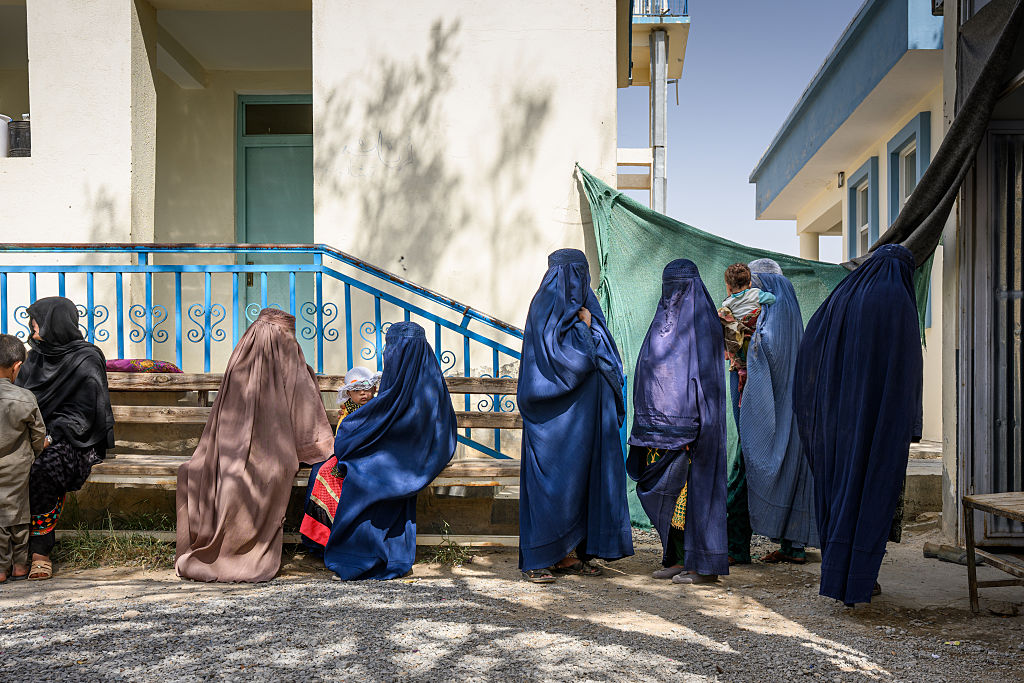By George Monaghan
Copyright newstatesman

Thirty paragraphs into the BBC’s article on Afghanistan’s nationwide internet shutdown, imposed by the Taliban government, comes the line: “Women and girls have also been particularly hard-hit.” Afghan women, already barred from education after the age of 12, had turned to the internet as their last remaining gateway to learning. The preceding 29 paragraphs focus on the shutdown’s impact on online banking and payments, air traffic control and telephone services.
Western journalistic indifference has been typical for women and girls in Afghanistan since the Taliban reasserted control in August 2021, following the withdrawal of US and Nato forces. When the Taliban annulled the country’s constitution and dismantled laws, global attention focused on trade, geopolitics and transnational jihad.
In the four years since, the Taliban has effectively erased women from Afghan public life. And the draconian repressions have intensified sharply over the past year. By June, the government had enacted a “vice and virtue law” that silences women in public and bans those without a mahram (male chaperone) from using transportation. The law is enforced by “morality inspectors,” who detain individuals suspected of violating the code and bring them before Taliban courts for prosecution – where a large number of female detainees report torture, sexual assault and abuse. Women and girls remain banned from attending medical education, participating in sports, visiting parks or public baths, travelling more than 72 km or appearing in public without mahram. According to Afghan Witness, some 94 per cent of all women’s protests now take place indoors.
The New Statesman reported in July that the Taliban had to some extent “abandoned jihad”. For other Islamic State groups and affiliated media, this shift was baffling: a movement once defined by attacks on foreign powers now allegedly appears to accept borders and engage in diplomacy. But it seems the Taliban had turned their aggression inwards. The new priority was implementing Sharia law and imposing authority on Afghan citizens – particularly women.
This shift has played out in deadly and unpredictable ways. Last month, the Telegraph reported that, following a 6.6-magnitude earthquake, Afghan women were left to die in the rubble of their homes. Taliban rules forbade male rescuers from touching women to whom they were not related, leaving injured and dying women hiding behind broken walls to avoid being seen. “We can’t speak with the women or try to contact them because it’s prohibited. Touching even a dead woman will have consequences,” said one rescue worker.
The question of how to meaningfully assist these women remains both unanswered and, arguably, unanswerable. Western intervention in Afghanistan is not likely in the near future. International aid struggles to penetrate Taliban barriers. On feminist forums, users grapple with the dramatic rise in violence and oppression. Some have called for the recognition of “gender apartheid” as a formal crime against humanity. But we have seen in Gaza that affixing such a label to a country with a determined and oppressive regime does little to restrain tyrannical rulers. Cutting off aid to exert pressure has similarly limited effect. Activists now encourage donations to organisations such as the Afghan Girls Financial Assistance Fund and Rescue Afghan Women Now, whose activities include helping women escape the country. One Reddit user suggested praying to the Archangel of Transition and Death, hoping it would systematically visit every member of Afghanistan’s morality police. “So many of the morality police will suddenly be expiring from heart attacks, strokes, aneurysms, accidents, etc, almost as if they are being targeted by spiritual warfare,” they hoped.
The plight of Afghan women under the Taliban underscores the human cost of a regime fixated on control rather than governance. Their circumstances remain a stark reminder that the struggle for basic rights is not only ongoing but intensifying under the Taliban’s inward-looking authority. This blackout is another, likely deadly, blow: it is not merely censorship – it is the deliberate severing of Afghan women’s last lifeline to freedom. And yet, from the BBC’s 29 paragraphs on disrupted air traffic to the broader silence across global outlets, the media still consign their suffering to the margins – treating it as a footnote when it should be the headline.
[Further reading: Under bombardment in Gaza City]



